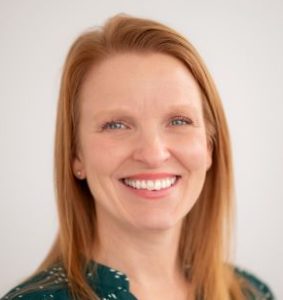
There’s a pit of desperation of sorts that normally envelops most journalists around holiday periods. With few folks working in government or corporate offices, important decisions and developments sometimes feel few and far between, and reporters often have to get creative to fill what we lovingly refer to as our news hole.
But nursing homes never sleep. And in the COVID age, neither, apparently, do the agencies that regulate them nor the courts that hold the power to reign in those regulators.
To be sure, skilled nursing operators witnessed an eventful series of events in the very same week-plus that many of us tried our best to celebrate the winter holidays amid a decidedly unfestive omicron surge.
Just as schools began shuttering for Christmas vacation, the Supreme Court announced it would hold a special hearing on two federal vaccine mandates for healthcare workers and those who work at businesses with 100 or more employees. The High Court even plans to come back early from its own winter break to hear oral arguments on injunctions currently blocking those mandates in part or full.
Not to be outdone, the Centers for Medicare & Medicaid Services the next day issued guidance clarifying its stance on visits, the number of which were, of course, about to explode at nursing homes over Christmastime. Better late than never, considering many nursing homes had asked for leniency on restrictions given a record-setting COVID-19 surge.
And CMS kept burning the midnight oil during a week in which Washington is typically quiet as a mouse — Congressional offices abandoned as lawmakers and staff head back to their home states and federal employees tear through use-them-or-lose-them vacation hours.
But not CMS, not this year. The agency doubled down on its right to enforce a vaccine mandate for healthcare Dec. 28, issuing unexpected compliance guidance to surveyors and effectively instituting new vaccination target dates for skilled nursing facilities.
Truly, it shouldn’t have come as a surprise that there would be new regulatory and legal news during the last stretch of 2022. It’s been a year of non-stop, sometimes evolving, sometimes contradictory guidance and rules.
Perhaps no one is more stressed by these rapid-fire changes than nursing home workers themselves, who are increasingly dissatisfied with their jobs and feeling largely pessimistic about the industry itself. That’s according to the annual McKnight’s Outlook Survey, which most recently surveyed 317 nursing home operators, executives, administrators and nurse leaders about their views on 2022.
We’d already heard so much about burnout during 2021, the second year of a pandemic that redefined the career attitudes of so many. But much of the talk has been about physical weariness, concerns about COVID’s health threats and working unceasing overtime. That winter vacation I was mentioning at the start of this story? I know you didn’t likely get much of one if you work in a nursing home.
Among all those other burdens, it’s almost easy to overlook the emotional toll our nurses and leaders face when they must constantly reassess what it means — morally and legally — to do the right thing for their residents and their workers.
“It’s driving a lot of the instability for the administrator and DON, even the corporate offices,” MedBest executive recruiter Katie Piperata told me last week. “It’s really hard to rally troops and make good business decisions and build morale, when every single week, every month … there are so many changes. It’s making it really hard to not feel like you’re in a volatile environment.”
While the holidays have passed, I have no doubt that providers are still hoping for some decisions on many of these constantly changing edicts. (Let asymptomatic workers leave quarantine without a test? Enforce a mandate for your facilities in some states but not others?)
Here’s hoping you all get a 2022 with fewer COVID cases and variants that change the game, more workers to shoulder the burden, and a little regulatory and litigious self-restraint from our government leaders.
Kimberly Marselas is senior editor of McKnight’s Long-Term Care News.
Opinions expressed in McKnight’s Long-Term Care columns are not necessarily those of McKnight’s.




